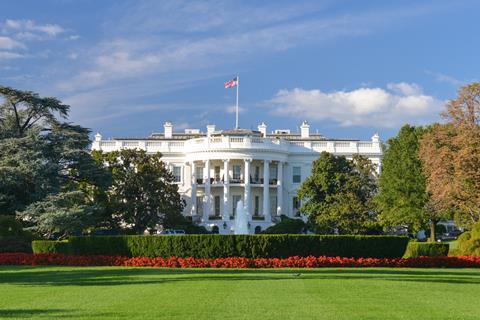With the dust settling on the election, Cathy Burns says the association is poised to collaborate with new US leadership on fresh produce initiatives
Following the US election, which returned former President Donald Trump to the White House, International Fresh Produce Association (IFPA) chief executive Cathy Burns issued a statement calling for collaboration and clarifying the priorities of the organisation.

“As we move into the next chapter of US leadership, IFPA stands ready to work collaboratively with the incoming president and the new administration,” she said.
”We are unwavering in our mission – to build our members’ prosperity by increasing access to and consumption of fresh fruits, vegetables, and floral products, a critical step in building a healthier, more resilient future for all Americans.”
Priorities for IFPA members remained clear, she noted, calling on congress to take “swift action” to pass a new, inclusive farm bill that addresses the evolving needs of US agriculture.
”For the fresh produce industry, this legislation is a cornerstone, supplying critical resources to growers and producers and ensuring the stability of our nation’s food supply,” Burns continued.
”The Specialty Crop Farm Bill Alliance, which IFPA co-chairs alongside over 200 organisations, is making the case for a robust package of policy and programme proposals to Congress, aimed at strengthening specialty crop agriculture and broadening the reach of U.S. agricultural policy.
“Currently, more than 80 per cent of the farm bill’s funding supports nutrition programmes, yet only one in ten Americans meet recommended dietary guidelines for fruits and vegetables,” she outlined.
”This is a crucial moment to reshape our nation’s food supply by expanding access to fresh produce to improve health outcomes for all.”
The IFPA would remain a ”driving force” in advancing national nutrition strategy and supporting initiatives to end hunger and reduce diet-related diseases, she noted.
”Our commitment to ‘Fight for Fresh’ is unwavering, as we harness the strength of our global produce and floral community to make fruits and vegetables both accessible and appealing to American consumers, while advancing supply chain improvements to make this vision a reality.”
Burns warned that the viability of many American growers was at risk, urging congress to meaningfully address a “critical” lack of on-farm labour that threatened the industry’s ability to meet consumer demand for fresh, nutritious food.
The produce sector relied on an affordable, stable workforce and was currently facing crippling workforce shortages and rising costs that routinely exceed crop values, she commented.
”The H-2A programme is the primary labor source for US produce growers, yet congress is paralysed by decades of inaction and has ignored the need for reforms to improve the programme’s accessibility to producers and its reliability in securely vetting and protecting temporary foreign workers,” said Burns.
”IFPA will continue to fight for the need for reliable labour solutions that ensure American growers can continue to feed our nation and the world.
“Together, we can build a healthier world and a sustainable future for fresh produce,” she concluded.



